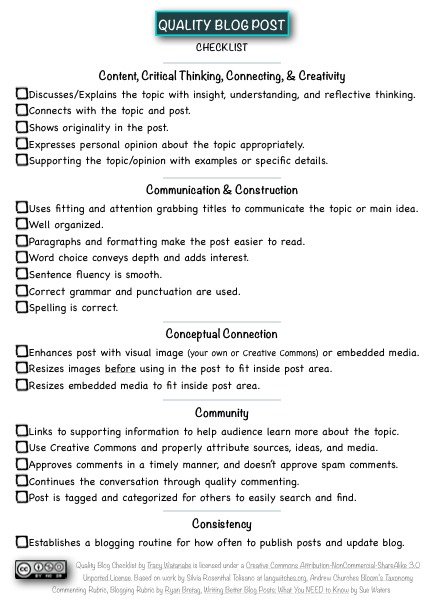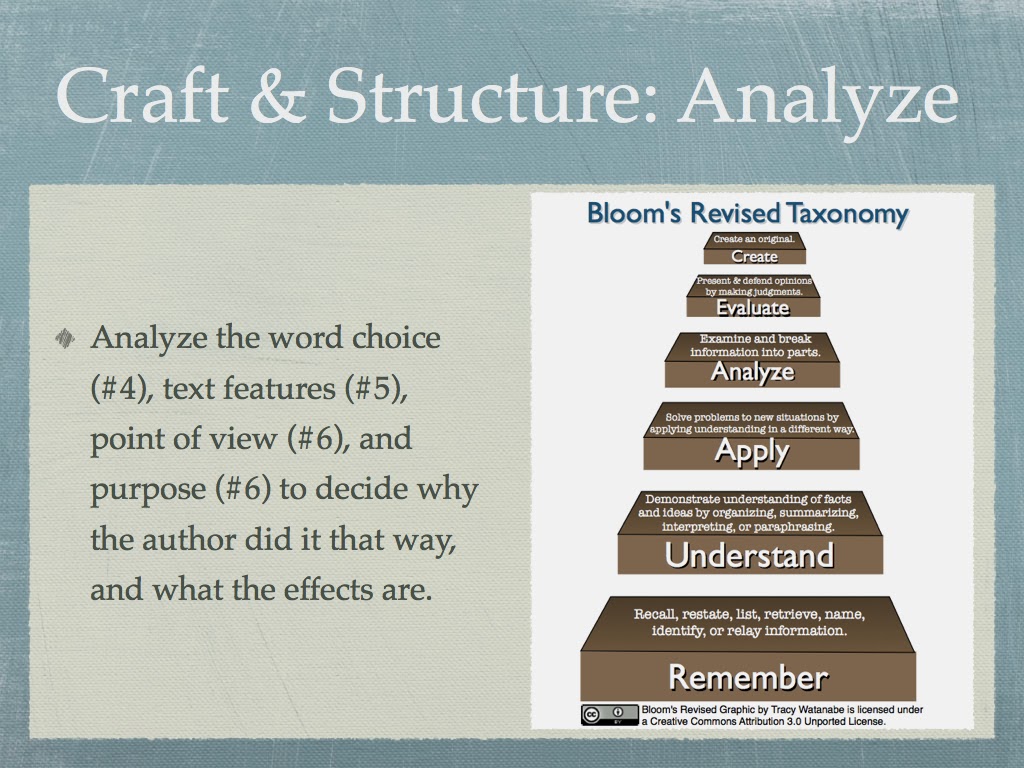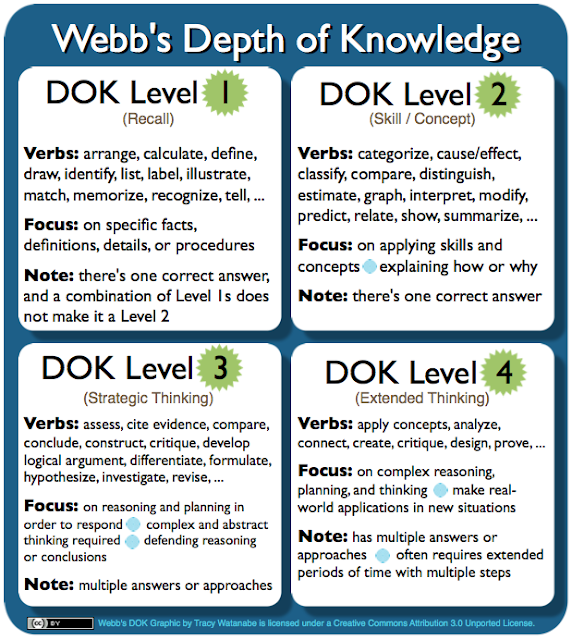Grading to Support Learning
The frustration is, there is nothing consistent with grades. We all grade differently. It's subjective no matter how we look at it because how one teacher would grade something is different than the teacher next door, which is different than the teacher across the district, which is different than the teacher in another district.
What would happen if teachers forgot how they were graded when they were in school, and instead used a grading system that fostered student learning? What would that look like?
#1 Academic achievement is separate from learning dispositions and behaviors
Academic grades should measure the student's learning, and be a valid reflection of what the student has mastered according to the state (or district) standards. Learning dispositions and behaviors need to be treated differently. Examples of these are student participation, effort, attitude, preparedness, and attendance.
A child might not be prepared for a number of reasons. Maybe he's disorganized. Maybe he's bored. Maybe he's worried about something else. There are so many maybes. The bottom line is, this is a behavior that he might need help with, but it should not be reflected in his academic grades.
Participation is also a behavior. If she's working on a group project, the project should reflect her learning and her portion of the project. It is never okay to allow other students to influence each others grades. Individuals need to be graded on individual achievement. What this means is, the teacher needs to set the project up for individuals to do each part individually within a group. This can be achieved several ways:
- each person has his/her own part within the project (such as having an expert role, or a specific task within the group's portion)
- each person has their own artifacts for what is graded and completed
- if it's a large project, such as a mural, then the portion he/she worked on should be graded
#2 Quality assessments
Use quality assessments on a regular basis to measure learning. Quality assessments have a clear purpose and they properly assess the learning. There needs to be a variety of quality assessments: formative and summative. They need to be ongoing and done regularly.
Appropriate tools such as portfolios, rubrics, and checklists should be used for evidence of learning. Again, there will be evidence of learning and evidence of learning dispositions and work habits. Be clear about what is academic assessment compared to evidence of behavior.
Multiple choice tests are only one type of assessment (used for formative or summative). When creating these tests, a variety of types of questions should be used. Use the HESS model to evaluate the Depth of Knowledge in addition to Bloom's Taxonomy.
 |
| I received this message at "Meet Your Teacher" for my son's 7th grade teachers, and was delighted in our first encounter as parent-teacher to be a positive one. |
#3 Scoring that accurately represents the student's mastery of content
Not everything goes in the gradebook.
I think about soccer and the coaching that takes place during practice (and even during the game) -- a great coach gives immediate feedback, which doesn't go in the stats. However, after a certain amount of practice, it's time for the game, and those are the results that gets recorded as stats. Likewise, the formatives (the coaching) should not go in the gradebook, but should be monitored to provide students with what they need to learn. When the summative is given, the teacher should already know that the students will be successful because the formatives indicate their learning, therefore, the summative is recorded in the gradebook.
Again, there should be various types of assessments given, including performance tasks, to better represent the student's mastery of content.
Some big points here include:
- Allow students multiple assessment opportunities to show what they've learned and how they can use their new knowledge in various ways. Sometimes it takes kids more times than others to understand it. They should be given the opportunity to continue trying and continue learning, instead of closing the chapter and telling them they are done learning that.
- There should be zero tolerance for allowing zero grades. Mathematically, a student doesn't recover from a zero grade. Furthermore, we want students to use it as an opportunity to learn, rather than settle for a grade that doesn't accurately reflect the mastery of the content (and the teacher shouldn't settle for a kid who hasn't learned the content -- no matter what).
- Create rubrics that accurately assess the learning.
- Involve the students in designing the assessment, recording their progress, and communicating their achievement.
- Be aware that averaging grades does not accurately represent the student's mastery of a concept. For instance, when I taught 2nd grade, "Math Facts" was on the report card. At the beginning of a quarter, the students didn't have enough practice and scored much lower than they did at the end of the quarter. If I averaged the students grades, it would not accurately reflect their mastery. Therefore, I only recorded their top score, and kept updating that score throughout the quarter.
A shared vision of grading
In Tracy-Utopia, there'd be a shared vision of grading which would include the following:
- The standards would determine what was graded.
- We'd agree on what mastery of learning the standards looked like, and what exceeded, meets, approaches, and falls far below the standards looked like. Furthermore, it would be consistent from classroom to classroom.
- Zero grades would not be tolerated.
- Students would be allowed to retry and do better.
- What was graded would be meaningful to the students, because the assignments would be relevant, engaging, and worth their time.
- What do you believe is the purpose for grading work?
- What would a grading system that fostered student learning look like?
Much of this post was written as notes during our AJUSD Leadership Team meeting with a powerful discussion led by Theresa Bartholomew two winters ago. I was inspired to complete it because of the expectation my son's teachers have for their students to succeed, which was clear from their brochure they sent home at "Meet the Teacher".



Tracy,
ReplyDeleteThanks so much for sharing this post with me. I'm so happy you finally published it. It is so relevant for me right now. I follow along with everything you've written, nodding my head in agreement, while at the same time feeling a growing pit in my stomach that maybe I shouldn't be a teacher. That is the extent to which I struggle with grades.
I am going to try to implement Tracy-Utopia in my classroom. I might have to start next quarter though. This quarter I've already gone very much against it. I've "graded" formative assessments (reflective blog posts)- either a 100 (if they did one) or a 0 (not published) with the only in-between being a lowered grade for a late post. I have hounded those few kids with the zeroes....some have the post written in draft and just need to publish. I would give them late credit for it at any time. Most of those students could care less about the zero grade.
As an English Language Arts teacher who believes in learning through practice (reading, writing, word work) I don't see myself giving a lot of tests. Summative assessments will be mostly projects related to books and formal writing assignments.
To me, doing the work and evidence of growth are very closely connected. I guess I need coaching in how to give valuable, useful feedback to students. Like you said, it is difficult to remove the subjectivity.
In my last position, as director of teaching and learning, I had to evaluate teachers. We used both a checklist and narrative feedback. The checklist was a rubric, similar to letter grades. It was SO subjective. And the teachers were obsessed with getting high marks on the checklist. It had no bearing on professional growth and was actually counter to it. Now we are moving to teacher-led evaluations and doing away with the checklist in exchange for narrative feedback. Everyone agrees that this is much more meaningful.
Thanks for the conversation! I really appreciate your thoughtful ideas about grades.
Wish me luck :-)
-Andrea
Dear Andrea,
DeleteRegarding how to give valuable, useful feedback to students, there were a few things I did when I was in the classroom. 1) For word work and responses on paper that had right/wrong responses, I placed stars only on the correct ones. That way, as I circulated, the students would see right away which responses were correct and which ones they needed to look at again. If I ever needed to work with a student, I could use that time to individualize/reteach. It was also beneficial for me because as I circulated the students for the second/third round, I could see which ones I've already looked at, and which ones I needed to look at again. I might also have a student or two help circulate with me if they had 100%. But that was just for routine class work or mini-lessons.
2) Another thing I did was for projects, as students neared completion, I'd conference with them and use the rubric to score it for where it is at that moment. As I did that, I'd make my thinking visible by sharing why this score and not that, but my focus was not on the score, it was on the learning. At the end of that conference, I'd ask the students what their next steps were and why. They'd share how they could improve it (based on the feedback). Sometimes I wouldn't tell them, but through my line of questioning, it would get them thinking in that direction. Those "grades" were only placed on paper and not recorded in the online gradebook for parents to see. I'd also write down anecdotal notes about their projects. What was beneficial for both students and myself was the feedback along the way, it also made it much easier to do the final grading (their summative) of that project because I've already given it preliminary grades along the way and have seen the growth, so I knew they'd all be successful, but also didn't have to start the grading process from the beginning. It's like a chef making soup, you taste it along the way to see if it needs more spices or broth or cream or... -- Does that make sense?
3) The other way I'd help with feedback was to create a classroom culture where students would ultimately give each other feedback. Sometimes it was in the form of a Wow and a Wonder. For example, as they'd listen to their partner (it could be during a think-pair-share type of time), the listener would have to give a specific wow of something that impressed them or they hadn't though of before, and share what made it stand out for them. They'd then get to ask one, "I wonder" question. For example, "I wonder what would happen if you approached the math problem with a different strategy for solving such as drawing it out?" -- It is a leading question that prompts the other student to think about and respond to. I'd then have a few of them share back to the whole class what Wow made them think the most (which was a formative for me) -- and that might spark others also share they had a similar Wow or how that was insightful. I'd also have them share a powerful "Wonder" and how it helped them move forward or move beyond where they were stuck. Again, it was a formative for me, it promoted active student engagement, and it empowered the students to be innovative, creative, critical thinkers, problem solvers, communicators, and collaborators. -- Silence always let me know I wasn't clear, or I lost them, which would prompt me to ask them to help me understand which part was difficult, or which part I wasn't clear about, or what questions they had... Again, empowering them, while informing me -- a very powerful formative assessment.
I hope this helps. Again, thanks for the conversation!
Kind regards,
Tracy
I find the information about grading group projects very useful. I tend to give each group member the same grading, trying to build teamwork skills within my class. Once the projects are over, I do notice that one or two students have put forth more effort and work into the project than the other group members. I will be sure to implement a new grading practice that focuses on individual achievement and effort as opposed to whole group grading. Thank you for your valuable insight.
ReplyDelete